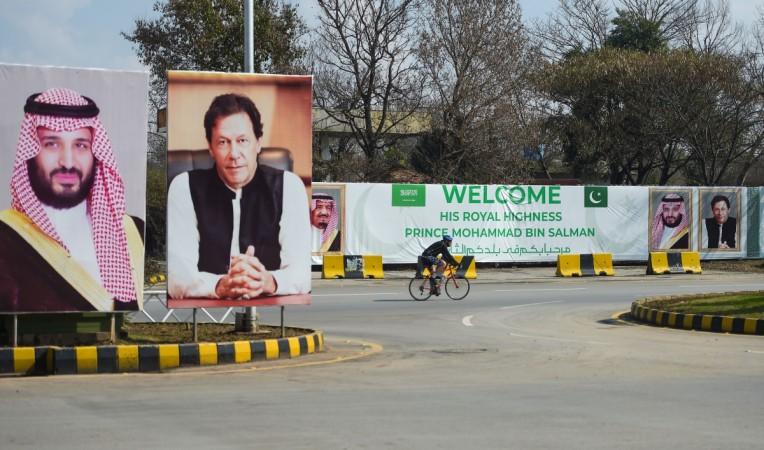
Saudi Arabia and Pakistan signed an array of investment deals worth $20 billion on Sunday, February 17. The leaders of the two nations reportedly signed seven agreements and Memorandums of Understanding, with Pakistan hoping that these deals would pull it out of a huge financial crisis.
One of the agreements signed is on Saudi Arabia's Aramco-run refinery in the Pakistani port of Gwadar and the deal is reportedly valued at $10 billion. In addition, Riyadh had earlier also agreed to provide $6 billion — $3 billion in aid and another $3 billion in deferred payment for oil imports — to the cash-strapped nation.
Speaking of the Pakistan visit and the deals signed, Prince Salman said that Saudi Arabia and the South Asian country were "creating a great future." "Pakistan is a dear country to the Saudi people and we will be partners as we have always been," Al Arabiya quoted the Saudi Crown Prince as saying. In tune, Pakistan prime minister Imran Khan also thanked Riyadh for the help it has extended.
"Pakistan and Saudi Arabia are now taking this relationship to a level which (they) never had before," the Agence France-Presse quoted Khan as saying. He added that Pakistan looks forward to building a solid relation with Saudi Arabia. Khan has been vocal about his intention to build an equation with Riyadh and has already visited the prince twice since assuming office in August 2018.
Just a few days ago, Riyadh had also slashed the visa fee for Pakistanis effective from February 15. As per the new structure, a single entry would cost SR338 ($90) as opposed to the previous SR2,000 ($533), whereas multiple entry visa fee was reduced from SR3,000 ($800) to SR675 ($180).
Pakistan's deal with Saudi Arabia comes at a time when the nation is facing major flak from several nations for becoming a breeding ground for terrorists. Several nations have lashed out at Pakistan for the Pulwama attack in Jammu and Kashmir that killed about 45 CRPF personnel and injured scores of others. In a bid to strategically expose Pakistan and the terrorist activities on its soil, India has already revoked the Most Favoured Nation status and has vowed to globally isolate the country.
Meanwhile, Prince Salman too isn't far from controversies. His three-country Asian tour is being seen as Saudi Arabia's way of making a point to the West that the prince still has friends in Asia. Prince Salman has been under the scanner after the brutal murder of journalist Jamal Khashoggi at the Saudi consulate in Istanbul, Turkey. Khashoggi, a vocal critic of the prince and his policies, was reportedly killed on the orders of Salman.
While Riyadh consistently denied these allegations saying it had no knowledge of the murder, the nation later went on to claim that Khashoggi was killed in an "unauthorised operation." Speaking of the message Saudi Arabia wants to send to the west, James M Dorsey, a researcher at the S. Rajaratnam School of International Studies in Singapore, explained that the prince just wants to show that he isn't an "international pariah."
The prince wants to show that he still has "international access and he can function... as the most senior representative of Saudi Arabia beyond the king," Dorsey explained, according to AFP.
Echoing his thoughts, Li Guofu, director of Middle East studies at the China Institute of International Studies also said that visiting the west is currently "inconvenient" for Prince Salman, but this are different in other countries.
"Not travelling to the West does not mean that he cannot come to the East. Saudi Arabia is also making strategic adjustments, and Asia is the new main direction of Saudi diplomacy," he said.
After wrapping up the Pakistan tour, Prince Salman is set to visit India and China.

















